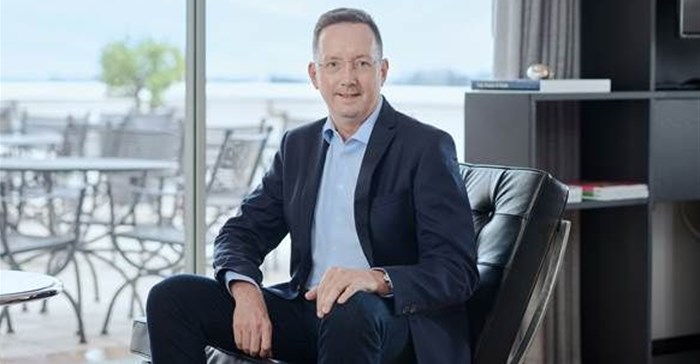
Related
Top stories


ESG & Sustainability#BudgetSpeech2026: SRD grant unchanged, other Sassa social grants see hike
10 hours



More news












ESG & Sustainability
South Africa’s carbon tax should stay: climate scientists explain why










TFG, which owns brands including Markham, Foschini, Sportscene and @Home, will build 10 new manufacturing business units in the coming year, as well as commit more than R600m towards opening in excess of 350 new stores. The investment in increased manufacturing capacity will more than double employment opportunities in the group’s own factories and strategic non-owned cut-make-trim (CMTs) factories from 5,200 in FY22 to 11,200 by FY26.
The R2.1bn Capex commitment for FY23 continues the group’s strategic investments to further strengthen its differentiated business model and mitigate disruptions to global supply chains.
TFG delivered exceptional market-share gains across all territories over the past financial year, achieving 27% growth in men's and ladieswear in South Africa against average growth for the segment of 5.9%, 57.3% vs 12.7% in the UK and 24% for TFG Australia vs the market average of 12.2% growth.
The group’s record performance was achieved despite a challenging trading environment, continued periods of lockdown, the civil unrest in KwaZulu-Natal and global supply chain disruptions, with retail turnover growth surpassing expectations at R43.4bn.
Gross margin for the group increased to 48.5% as strong demand for TFG’s products resulted in a higher proportion of full-price sales and fewer markdowns. The company said this was enabled by a number of factors, including quick response local manufacturing which makes up an increasing proportion of the 72% of locally sourced apparel. "The group has consistently demonstrated the benefits of this quick response manufacturing, particularly through increased stock turns and improved stock newness," it added.
“This strong performance during a period of significant uncertainty is a testament to the resilience of our operating model, management teams and employees. The Group has continued to invest in its key strategic initiatives, driving both organic and inorganic growth,” said TFG CEO Anthony Thunström.
“We have opened 274 new stores in South Africa, completed 96 relocations and enlargements, rebuilt or restored 176 looted stores as well as opened 41 new stores in Australia and 8 new stores in London. That’s 2.4 stores a day over the past year! Additionally, we’re making significant investments in expanding our manufacturing capacity,” said Thunström.
“Inorganic growth is also a continued focus, and our previously announced acquisition of the Tapestry Group, subject to regulatory approval, is another example of our investments in new brands, capabilities and strategic verticalisation.”
The company achieved double-digit growth in e-commerce turnover across all territories, recording an 18.0% increase in online sales in Africa, 13.8% in the UK and 26.9% in Australia, extending the trend towards online shopping experienced during lockdown as TFG accelerates its transformation into a true omnichannel retailer.
“TFG has made solid progress in our goal to create the most remarkable omnichannel experience for our customers, with the acquisitions of leading app developer Flat Circle and last-mile delivery service Quench, as we pave the way for the upcoming launch of our new integrated omnichannel platform that leverages group scale to bring all TFG brands together, along with third-party vendors,” said Thunström.
“This will create a home for all of our brands and other businesses that want to leverage TFG’s scale, bringing over 200 of the world’s best brands and more than 2,000 new styles a week onto one platform to provide an unrivalled selection across fashion and lifestyle goods.”
“Our commitment to putting our customers first is reflected in TFG’s dominance in social media audiences, 22% growth in our loyalty base, continuously improving customer satisfaction scores and 20% decline in call-centre contacts despite increased online turnover.”
“Our investment in TFG Labs is producing a step-change in critical performance areas, with a 19% reduction in cost per order, 50% improvement in last-mile on-time deliveries and 10% drop in average order turnaround times.”
“The superior growth achieved in all our operating territories and solid progress on key strategic objectives leaves TFG very well positioned for further organic and inorganic growth, supported by a strong group balance sheet,” said Thunström.
“Just as importantly, the group has delivered remarkable progress in our social performance. In a country facing devastating levels of unemployment, we have added 7,176 jobs and workplace opportunities, shifted R2bn more business to Black-owned suppliers, set environmental commitments for cotton, wood and washcare labels and signed up to the Better Cotton Initiative to source cotton sustainably. TFG has also become the only major retailer to achieve a Level 3 B-BBEE score, up from a Level 6 in the previous year.”
“This is a measure of TFG’s ability to create value for our customers, shareholders, employees and communities as we grow the business,” Thunström said.